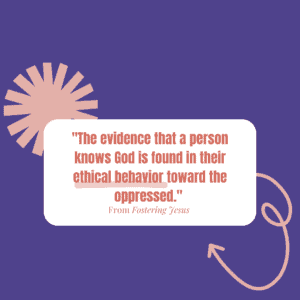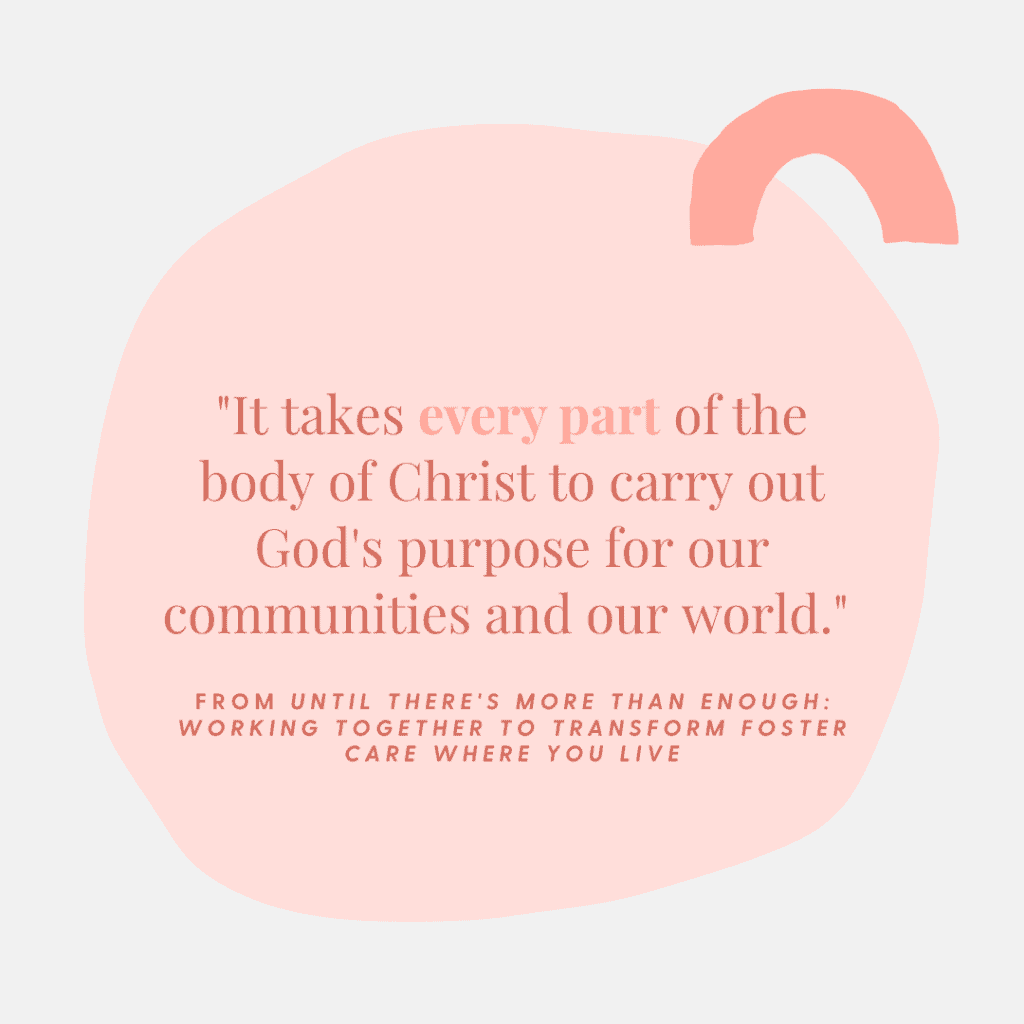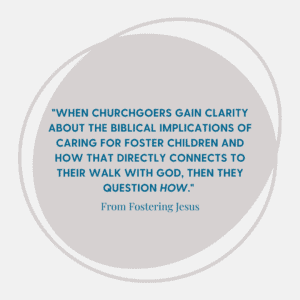Have you ever considered the role of foster care support within the church? Scripture calls believers to care for the orphans and most vulnerable, exhibiting Christlike agape love in everything we do. What does this mean for us?
In Dr. Bob Griffith’s book, Fostering Jesus, he provides readers with a variety of information about how to support foster care families within the church body. At the same time, it also includes powerful, true stories of foster families that were obedient to God’s calling in their lives. You might be wondering how to support foster care because you might not be in a place to have a child enter your home. There are many ways to help and increase foster care support.
The church today has the same potential to effect change as the Early Church did because the same Holy Spirit empowers it with the same calling.
Dr. Bob Griffith
Caring in the Bible
In Acts 9, we see a woman named Tabitha who cares for the poor faithfully, making them clothes. Peter knelt and prayed for healing when she was sick and close to death. Tabitha then sat up and came back to life. She was “a faithful disciple who helped others and received God’s help when she was in her time of need.”
This is a beautiful example of how we can act. This models the heart of Jesus; as believers, we are called to act in His likeliness by being disciples.
Kindness in the Bible

Another example is in Luke 10:25-37 — the parable of the Good Samaritan. A man was beaten by robbers and left half dead on the road. A priest and a Levite passed him and didn’t acknowledge or help him. Later, a Samaritan traveled and saw the hurting man, taking pity on him. The Samaritan bandaged the man and cared for him, bringing him to an inn. At the end of the passage, Jesus encourages us to go and “do likewise.”
Jesus instructs us to be set apart and selfless. This is the beauty of what it means to be a part of the body of Christ. And by functioning in the body of Christ, we are called to serve within the church, being the hands and feet of Jesus. Ephesians 2:10 says, “We are God’s handiwork, created in Christ Jesus to do good works, which God prepared in advance for us to do.” Thus, as a part of the church, we are created to do good works and help those in need.
The Church Can Provide Foster Care Support
“Religion that God our Father accepts as pure and faultless is this: to look after orphans and widows in their distress and to keep oneself from being polluted by the world” (James 1:27). This is a Biblical expectation. We are called to protect orphans from the world’s dangers by giving them a safe place. After all, as Griffith says, the church is positioned to be the “best way to care for orphans in American society today.” The US foster care system has almost 400,000 children needing a safe place to live.
We were all orphans, yet through Jesus, we can be adopted into Christ’s family. Because of this, why would we turn away from our brothers and sisters of Christ in their time of need? Isaiah 58:7 perfectly exhibits how foster care support is essential to our walks as Christians. We are instructed to seek those that need help and put their needs before our own. This can look like taking a child into your home or simply supporting and caring for foster families.
Church Communication
In his book, Until There’s More Than Enough: Working Together to Transform Foster Care Where You Live, Jason Weber outlines how the church can address foster care. He discusses that there is a lot that the church can do to provide healthy communication for this issue. While sermons and announcements are an outlet, the church can also implement a consistent communication stream through social media, engagement opportunities, etc.
Weber also says that when the church selflessly loves and cares for foster families, it is “living out its true character,” being the “light of the world.” It’s so simple to seek out those that need help within the foster care system, but it is up to the church as to how they want to address it specifically.
Showing Love is Support
Living life like Christ includes a lifestyle of agape love. This is a love that is sacrificial, committed and faithful. Love rooted in Christ is not fleeting. It means sacrificing your own wants and desires to fulfill God’s plans for your life — all because of His love for us as His children. Griffith says that because of “God’s adoptive love for us, we are compelled to love others.” Agape love is beautifully demonstrated in foster care support by not only becoming a foster parent but by serving foster families in different ways. This is truly the heart of God.
The Church and Foster Care Support
Griffith emphasizes that every Christian is called to care for the orphan, but not every believer is called to bring a child into their home. Becoming a foster parent is one role within the foster care system. However, there are different ways to practice foster care support. Griffith highlights the efforts of Journey Church and their application of the CompaCare model within their church body. In this system, a leader in the local church evaluates foster care in their community and formats a ministry plan that includes ways to take action for the year.

Examples include organizing meals for foster families, hosting parenting classes, childcare, donating funds, information about expenses involved with adoption and creating support groups and prayer teams. By providing opportunities for foster care support and being informed about what goes into becoming a foster parent, Journey Church has brought awareness to foster care.
Foster Care Awareness
Serving can be defined in a variety of ways, and it is up to the church how to navigate this. Another example Griffith includes in Fostering Jesus is Orphan Sunday: an annual event where “churches talk about the needs in the community and answer questions after service for interested families. This provides churches with helpful information about the foster care system in their local communities and how they can help in whatever capacity they feel led.

Many people within the church have been encouraged to foster themselves. A big reason people are intimidated is the lack of information. Focus on the Family has a new website called Wait No More that provides helpful information for those interested in either becoming foster parents or supporting foster families. The website has specific information for each state’s foster care policies, along with articles and videos to encourage and inform.
As stated previously, Weber says that there are many other ways to inform the church about foster care that don’t have to include a sermon. Weber says that healthy communication is simply centered around clarity. If you’re curious if your church implements clarity effectively, see if there are “multiple things in place that make it clear to church members how they can get involved in foster care-related initiatives that your church offers” (Weber). If the answer is no, then the solution might be you taking a stand to make a difference and bring clarity.
Unfortunately, there are so many believers in the church that are unaware of the need for foster care. By making it visible, this will be crucial to address the problem in communities across the country through an increase of foster care support. Adoption Awareness Month, Foster Care Awareness Month, and Reunification Month also bring light to foster care awareness.
Foster Care Support
As your can see, there’s a role for you to implement foster care support no matter what stage of life you are in. There is an opportunity for you to exhibit age love and facilitate it within the body of your church. To become more informed about foster care in your specific community, click here to navigate the specific laws that pertain to your state. You can read more about foster care support in Fostering Jesus and Until There’s More Than Enough: Working Together to Transform Foster Care Where You Live, along with being encouraged by powerful testimonies.
















